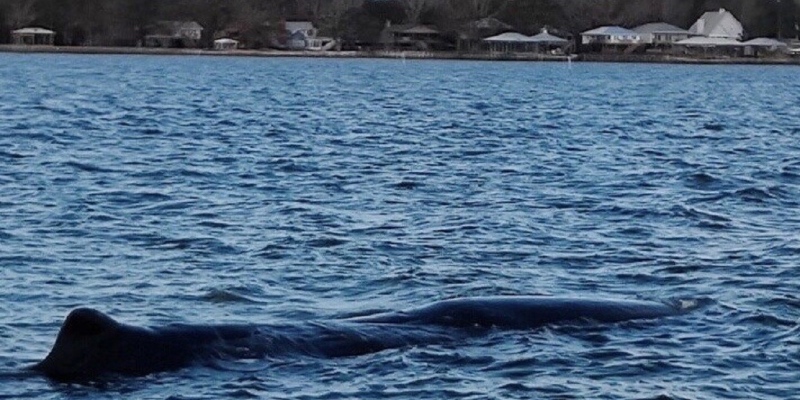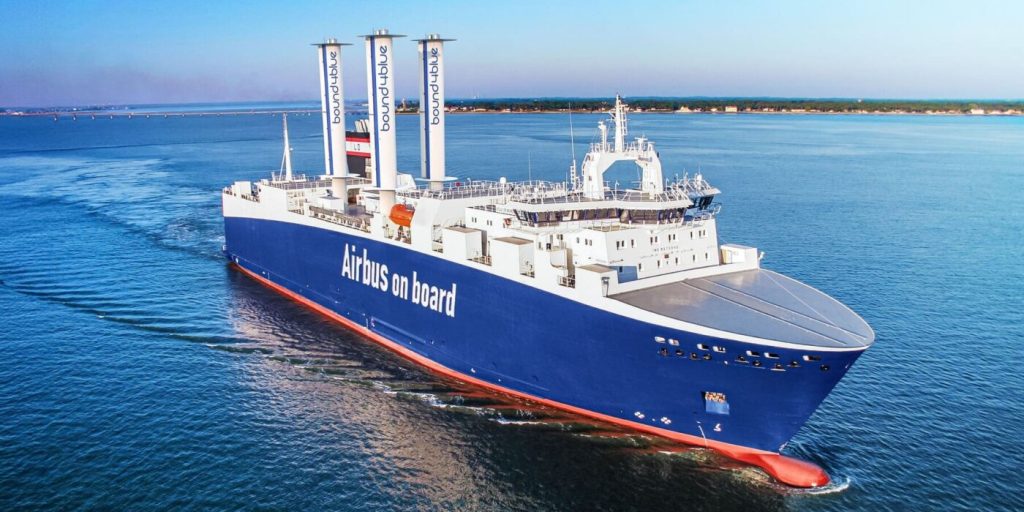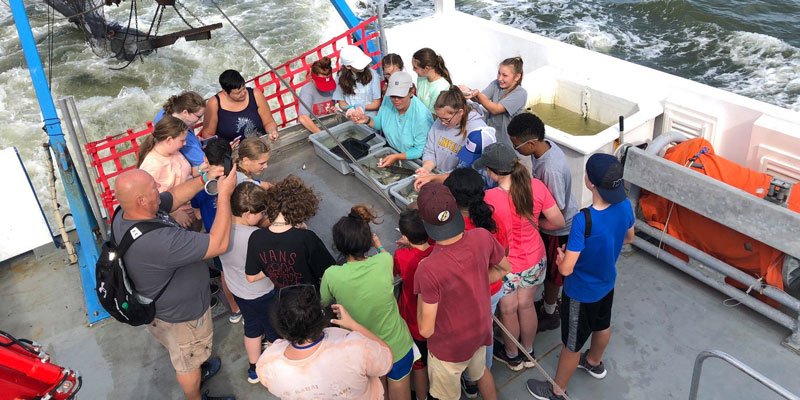James West was hoping to find red snapper when he pulled his boat into Mobile Bay last Thursday. Instead he found one of the world’s largest mammals.
At first, West thought he spotted some dolphins. “We saw a bunch of birds and some humps off in the distance,” he said. Then he thought it might be manatees. As he steered closer, he decided, “someone was either playing a trick on me or the Navy had lost a submarine.” When it sprayed water into the sky, West realized it was a whale.
West knew a whale in Mobile Bay was not a normal occurrence. He immediately began making calls talking to people as far away as Cape Cod, Massachusetts. He eventually got in touch with the National Oceanic and Atmospheric administration (NOAA) and the Dauphin Island Sea Lab.
Everyone he spoke with seemed a little skeptical at first. “I guess they didn’t quite believe it until I sent them pictures and videos, and then they became extremely excited,” he said. The Dauphin Island Sea Lab quickly responded to the scene to monitor the whale and the Alabama Law Enforcement Agency (ALEA) secured the area around the whale to protect both it and boaters.
West learned from responders he had found a sperm whale, a deep ocean feeder extremely rare for shallow gulf waters. The species is the largest toothed whale and can grow to sizes dwarfed only by finback and blue whales. While they can grow to 60 feet in length, the one found by West was approximately 35 feet long.
According to the Dauphin Island Sea Lab website, two sperm whales strand themselves on average, somewhere along the Gulf of Mexico each year. However, this is the first time such an occurrence has happened in Alabama waters.
The excitement of finding the whale in Mobile Bay is overshadowed by the health of the animal. Responders told West the whale was emaciated and discolored when they arrived. Even to West’s untrained eye, he could tell the whale looked unhealthy.
The Dauphin Island Sea Lab’s Marine Mammal Research Program monitored the whale and posted updates to its website. Unfortunately, the whale had to be euthanized Wednesday morning.
“We appreciate the public and their concern for this sick whale and their understanding as we continued our search to safely do our work,” the Dauphin Island Sea Lab said in a statement. “Our team of biologists and veterinarians were able to successfully and humanely euthanize the whale Wednesday morning, November 25. Euthanasia was the best option for this animal who was suffering and unable to swim and survive any longer in the wild.”
The Dauphin Island Sea Lab said Alabama Marine Mammal Stranding Network and DISL Marine Mammal Research Program collaborated with the Alabama Department of Conservation and Natural Resources, Institute for Marine Mammal Studies in Mississippi and NOAA.
(Courtesy of Alabama NewsCenter)













